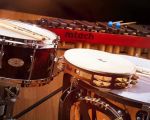Reviews of the Best Music Software for Beginners
As a beginner in music production, choosing the right music software can feel overwhelming. With so many options available, it’s important to select a program that matches your needs, skills, and creative aspirations. Whether you’re just starting out or want to explore new software options, this guide will help you find the best music software for beginners, considering factors like ease of use, features, and affordability. After diving into several popular choices, I’ll share my experiences and provide detailed reviews to help you make an informed decision.
1. Why Choosing the Right Music Software Matters
When I first started learning music production, I was faced with numerous software options. The world of music software is vast, and it’s easy to get lost in the details. Many beginners often wonder: What should I use for my first project? What software will allow me to grow as a producer without being overwhelmed?
Choosing the right music software can make a huge difference in your learning curve and creative process. As a beginner, you need software that’s user-friendly, flexible, and capable of growing with you. A poor choice could lead to frustration and ultimately stunt your development. That's why I took the time to test several popular options, reviewing their ease of use, features, and overall value for beginners.
2. Ableton Live: Ideal for Electronic Music Beginners
Ableton Live has long been regarded as a favorite among electronic music producers. It’s intuitive, powerful, and packed with features that allow you to experiment and grow. From the moment I opened Ableton Live for the first time, I was impressed by its sleek interface and workflow. For beginners, the session view (a unique feature of Ableton) is perfect for creating loops and experimenting with different ideas in real-time.
The software offers a wide range of virtual instruments, effects, and sound libraries, and its drag-and-drop interface makes it easy to get started. Another major benefit is the availability of extensive tutorials online, making learning Ableton much more manageable for new users. That being said, some beginners may feel overwhelmed by its more advanced features, but with time and practice, you can take full advantage of what Ableton Live has to offer.
3. FL Studio: Great for Beginners Who Want to Create Beats
If you’re someone who loves creating beats or is passionate about hip-hop or electronic music, FL Studio is a top choice. I personally found its pattern-based interface quite useful when I was just starting out. It’s perfect for creating loops and building entire tracks around your beats, making it an excellent tool for any budding producer interested in rhythm-driven genres.
FL Studio has a variety of beginner-friendly features, including an easy-to-understand interface, a comprehensive step sequencer, and a range of built-in virtual instruments. As I explored the software, I was particularly impressed by the variety of plugins available in the bundled version, which makes it one of the best value-for-money options for new producers. The only downside is that it might take some time to get used to, especially when it comes to advanced features like automation and multi-track editing.
4. GarageBand: The Best Free Option for Mac Users
For Apple users, GarageBand is an incredible free option. I can’t tell you how many beginners I’ve spoken to who started their music production journey with GarageBand. The program provides all the essential tools you need to create music, including loops, virtual instruments, and basic editing features. The best part? It’s free for Mac users, so it’s an accessible entry point for anyone looking to dip their toes into music production without making a financial commitment.
While GarageBand doesn’t offer the same advanced features as some other paid software, it provides everything you need to get started. For beginners, it’s ideal for learning the basics of production, mixing, and recording. If you’re looking for something with a low barrier to entry but still want to create polished music, GarageBand is definitely worth considering.
5. Logic Pro X: For Beginners Ready to Take the Next Step
Logic Pro X is essentially an upgraded version of GarageBand, but with far more advanced features. I’ve personally used Logic Pro X for several years, and it’s my go-to DAW (Digital Audio Workstation) for serious music production. While it may seem daunting at first, Logic Pro X is a natural progression for anyone who has started with GarageBand and is ready to take their skills to the next level.
Logic Pro X offers a vast library of virtual instruments, effects, and sound libraries, and it’s incredibly versatile for a wide range of genres. It also includes advanced features like MIDI editing, multi-track recording, and a sophisticated mixing suite. For beginners, it might feel like a steep learning curve, but once you get the hang of it, Logic Pro X can be a powerful tool in your creative journey.
6. PreSonus Studio One: A Beginner-Friendly Option for Professional-Grade Music Production
If you’re looking for something a bit more professional, PreSonus Studio One is worth considering. It offers a lot of flexibility, making it a great choice for beginners who want to dive into professional-grade music production without feeling overwhelmed. I found Studio One’s interface to be clean and intuitive, which made it easy for me to transition from one software to another. It also has a robust suite of features, including drag-and-drop functionality, automation, and multi-track editing.
One of the highlights of PreSonus Studio One is its workflow. It’s designed to streamline the music production process, allowing you to focus more on creativity than technical details. While it’s great for beginners, it also has enough depth to keep more experienced producers engaged. Overall, it’s a solid choice for anyone serious about making music.
7. Choosing the Right Music Software for You
Ultimately, the best music software for beginners comes down to your personal preferences and what you want to achieve. If you’re mainly interested in electronic music and beats, FL Studio might be your best bet. If you’re on a Mac and looking for a free option, GarageBand is a fantastic starting point. For those who want to grow into more professional software, Logic Pro X or PreSonus Studio One offer more advanced features without being overly complicated.
The key is to try out different programs, take advantage of online tutorials, and experiment with various features to see what suits your workflow and creative goals best. The right software will empower you to bring your musical vision to life and make the learning process enjoyable and fulfilling.
SEO Title: Best Music Software for Beginners: Reviews and Recommendations SEO Keywords: best music software for beginners, music production software, FL Studio, Ableton Live, Logic Pro X, music creation tools, GarageBand for beginners SEO Description: Explore the best music software for beginners. From FL Studio to GarageBand and Logic Pro X, find the perfect music production software for your needs and skills.







